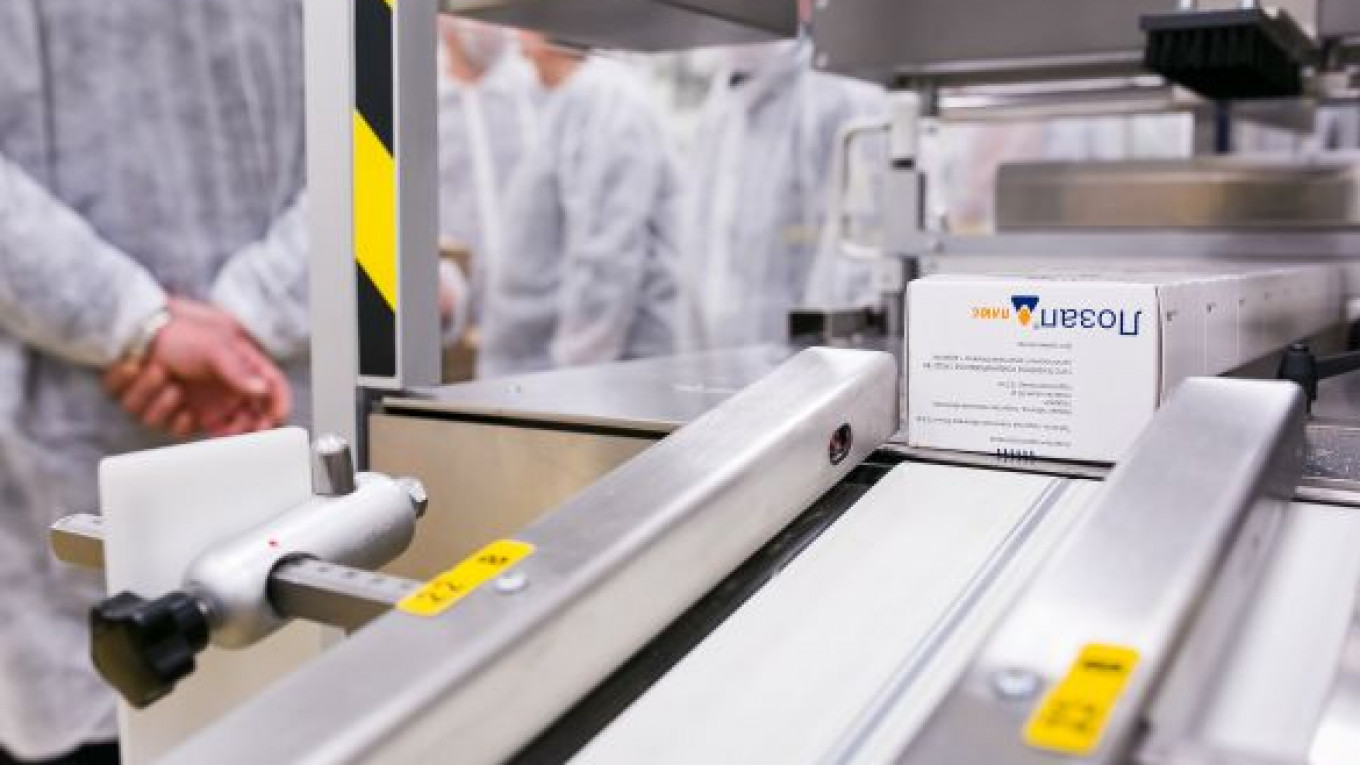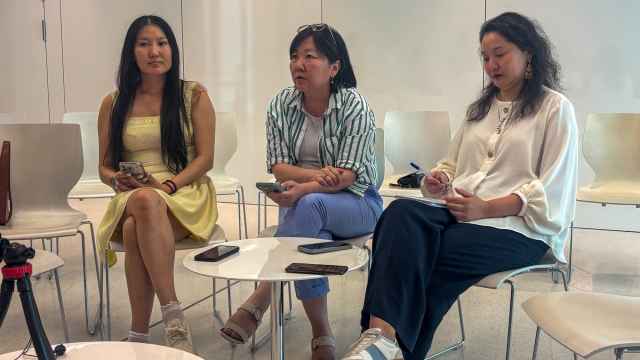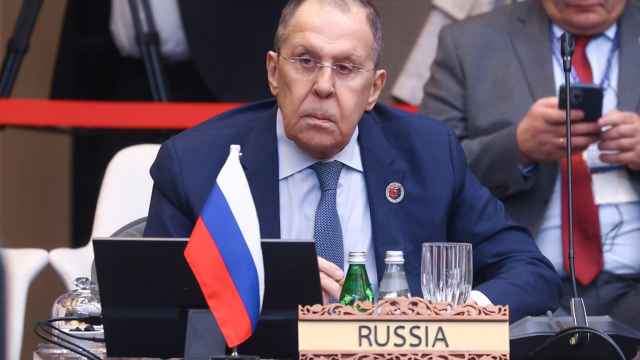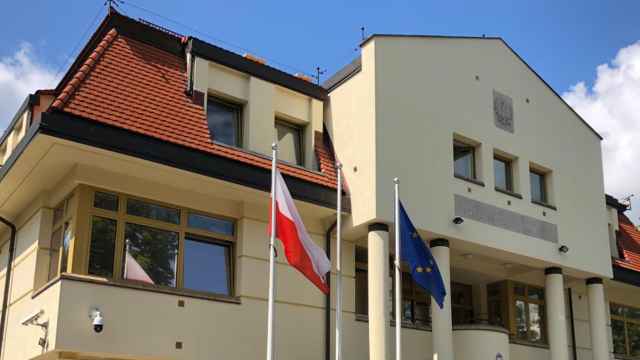Czech firm Zentiva's drug to treat high blood pressure took just three months on the Russian market to outsell rival medication made by U.S.-based Merck.
In effecting the coup in 2004, Zentiva's Lozap took advantage of the expiry of the patent for the chemical molecule that Merck had developed for its Cozaar drug. Without the need to recoup spending on expensive research, Zentiva was able to offer a lower price.
Lozap has since then led the market of similar medicines in the country. As of August, the medicine accounted for 40 percent of the market, or 140 million rubles ($4.4 million) in sales, while Cozaar lurked at the bottom with 1.5 percent, according to market researcher IMS.
Generic drugs like Lozap, which have the same effect on a patient as their more expensive forbearers, have made considerable inroads in Russia in recent years. Companies like Zentiva could benefit further from a government push that is likely to give the more affordable products a larger foothold.
The government wants to increase the population's access to inexpensive high-quality drugs in state-funded hospitals and, separately, is going forward with a program that seeks to reimburse more people for their expenses buying certain medications over the counter through 2025.
"Given the large-scale nature of the program, the government is likely to be interested in containing costs, and ensure price competition, therefore presenting a particularly attractive opportunity for generics' share to grow," said Kavita Rainova, Russia healthcare analyst at London-based consultant IHS.
Spending on generics in Russia will grow by $10.9 billion by 2020, compared with 2011, consultant PwC said in a report in December. The government and individuals will spend a more modest $3.9 billion more on patented drugs over the same period, the report said. It did not provide the total numbers for the expenditures, and attributed the trend to the "lack of financial power to reward innovation" in the country.
That compares with the 773 billion rubles ($24 billion), which was the value of the country's drug market last year, according to market researcher DSM.
According to Zentiva, generics account for 60 percent of all unit sales, and about 25 percent of the value of all drugs sold in Russia last year.
For now, the government does not break down its spending on drugs in patent-related terms. Last year, the state spent 236 billion rubles ($7.4 billion) to supply hospitals and on reimbursements, DSM said.
To Localize or Not?
Dmitry Khalilov, a partner at consulting firm EY in Moscow, said the reason why some foreign drugmakers committed to build local plants here was that they counted on the increasing demand for generics. The government favors locally-made drugs in state purchases.
Last year, Japan's Takeda completed a $97 million medicines factory in Yaroslavl, which will initially produce three off-patent drugs: Cardiomagnyl, Actovegin and Calcium. Swiss-based Novartis is planning to start a $140 million plant to make both original and generic drugs in St. Petersburg next year.
A number of Russian companies are also building factories around the country to make generic drugs.
Zentiva is not considering a move like this. For now, it will continue to produce its Russia-bound drugs at a Prague plant.
White as pills, oversized clay frogs gifted to the company by a local orphanage randomly crouch by a pond in the Zentiva plant's courtyard, looking perfectly healthy and not in need of any medication.
Inside, a policy of utter intolerance to air and surface impurities makes staff wear polyester overalls, face masks, caps and boot covers as they manufacture the drugs, including Lozap. Some of the carton boxes with medications say 'Russia' as the destination.
Lack of ambition to go local in Russia does not mean the company is oblivious to the specter of increasing rivalry on the market.
"There is lots of growth in Russia, but also lots of competition," said James Guy, Zentiva's strategic marketing director. "It will mean price pressure in a number of years."
No Brand, Less Cost
In an effort to win a larger piece of the market pie, Zentiva has been selling unbranded generics, which are even more inexpensive, since January. Packages with this type of generics sell under the name of the pharmaceutical ingredient they contain and identify the manufacturer, rather than the brand.
The strategy of dropping brand names for some generics allows Zentiva to save on promotion and therefore, reduce prices further, said Vadim Ryabokon, head of the company's department of business solutions in Moscow.
A broader penetration of unbranded drugs would make Russia more like the European Union, where 95 percent of generics are like that, he said. In Russia, the proportion is now the opposite.
In a bid to foster the spread of generics, both branded and unbranded, the government issued an order, which took effect in July, that guides doctors to identify the ingredient, rather than a brand name, in prescriptions.
Zentiva ranks as the No. 5 generics company in terms of the value of monthly sales in Russia, as of May this year, company data shows.
Some other big names on the list of Russia's generics market leaders are also from Eastern Europe. Hungary's Gedeon Richter is the biggest star in that universe, while Slovenia's KRKA holds second place.
Israel's Teva gets the bronze medal and India's Dr. Reddy's Laboratories ranks fourth largest.
Contact the author at [email protected]
A Message from The Moscow Times:
Dear readers,
We are facing unprecedented challenges. Russia's Prosecutor General's Office has designated The Moscow Times as an "undesirable" organization, criminalizing our work and putting our staff at risk of prosecution. This follows our earlier unjust labeling as a "foreign agent."
These actions are direct attempts to silence independent journalism in Russia. The authorities claim our work "discredits the decisions of the Russian leadership." We see things differently: we strive to provide accurate, unbiased reporting on Russia.
We, the journalists of The Moscow Times, refuse to be silenced. But to continue our work, we need your help.
Your support, no matter how small, makes a world of difference. If you can, please support us monthly starting from just $2. It's quick to set up, and every contribution makes a significant impact.
By supporting The Moscow Times, you're defending open, independent journalism in the face of repression. Thank you for standing with us.
Remind me later.






